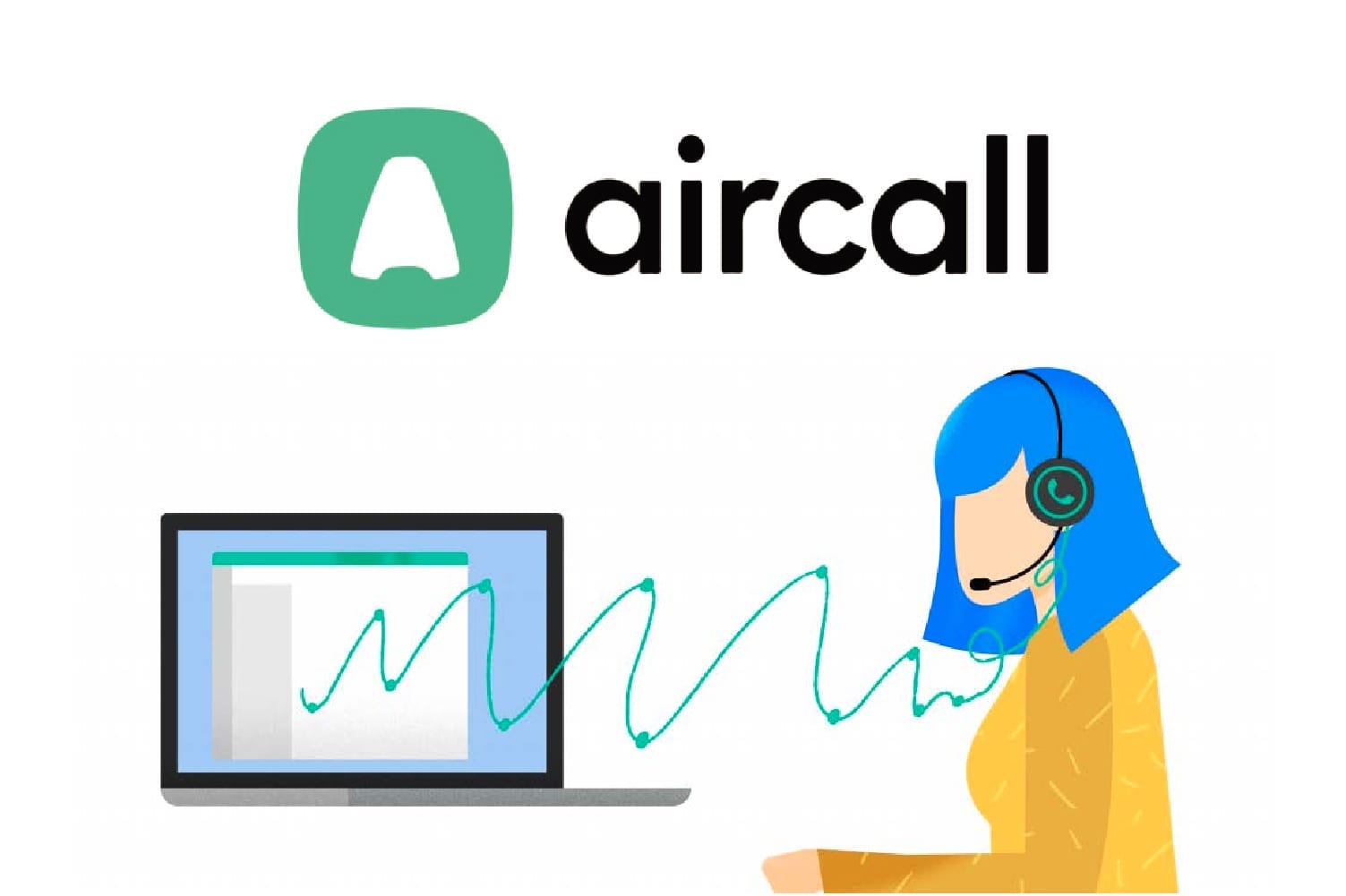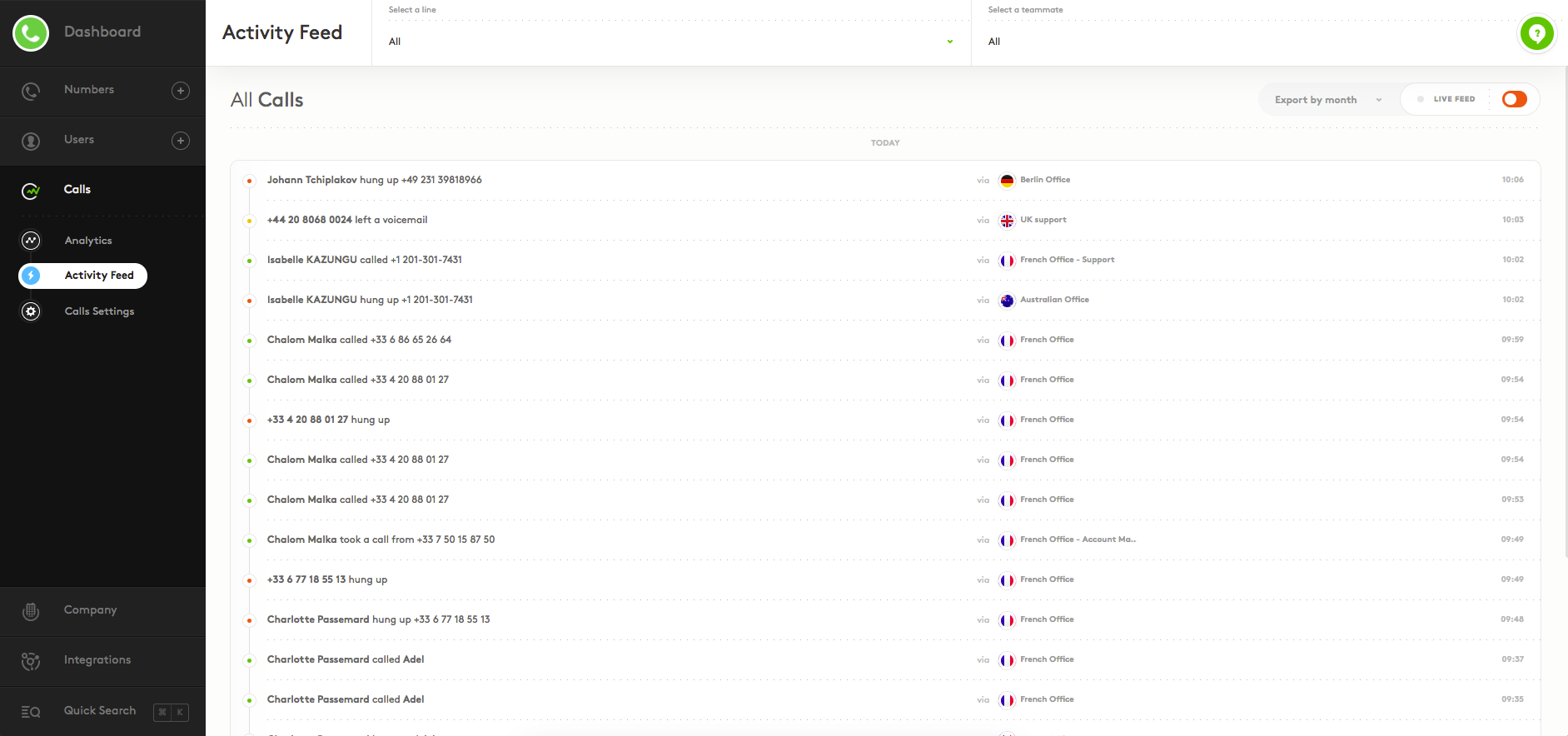

Further, Dialpad would be useful as a pure business phone system (as well as a CCaaS solution), while Aircall is best fit as a sales-centric contact center solution. In short Dialpad is closer to an enterprise-capable solution than Aircall is. While these two competing solutions have quite a bit in common there are also some key differentiators that will be meaningful to some buyers. What are some key differences between Aircall and Dialpad? Even “big” changes like adjusting call flows is simply drag and drop or point and click.Ĭalling, messaging (internal, RTC, SMS), presence and call recording all come right out of the box with both solutions. They are also super easy to administer: new users can be added quickly, and reporting is straightforward.
#Aircall cost software
These systems both have brilliantly easy-to-use UIs that remain consistent across all of their software clients.

You can literally have an entire system deployed, with integrations into Salesforce, Slack, Zendesk, or whatever you choose within a few minutes. What do Dialpad and Aircall have in common?īoth of them are built around simplicity.


Still, this is not really the intent (for now at least) of these systems - they target smaller organizations with less complex needs and resources, but who can gain incredible value in terms of efficiency and data from deploying these applications. While Dialpad especially seems to be inching towards enterprise-level contact center functionality, a business is still not likely going to be able to replace their Cisco UCCE with either of these offerings as they are somewhat limited in overall capacity and customizability versus a fully featured enterprise grade contact center.įor example, neither solution supports call queues >500 users and skills-based routing is single dimensional so agents cannot be assigned multiple skills within the same call center. While these systems are lightweight and easy to use, they are ultimately not as capable as traditional enterprise-centric contact centers. While Dialpad offers a lot of different functionality with their range of products, they historically have been known as a CCaaS, much like Aircall. In addition to Dialpad's software clients, their services can also interop with traditional IP endpoints, aka physical desk phones.
#Aircall cost license
Each product has its own license and seamlessly interoperates in Dialpad’s iOS, Android, MacOS, and Windows clients.
#Aircall cost android
Administration of the Aircall system is entirely web based, and actual utilization of the service requires an endpoint running Aircall’s software client which is available for MacOS, iOS, Android and Windows.ĭialpad is a unified communications system (Business Phone System), inbound contact center solution (Contact Center), video conferencing platform (through UberConference) and outbound call center service "sales dialer". Aircall is built to be quickly and easily deployed and easy to manage and scale.
#Aircall cost professional
While Contact Center or Call Center type users will likely see the most value from these systems, they can also be deployed as a conventional UCaaS system to serve an entire office (more on this later).Īircall is purely focused on being an inbound and outbound contact center solution and offers 3 licensing tiers based on the functionality that the end user needs: Essentials ($30/month), Professional ($50/month) and "Custom" which is geared for larger users that may have unique needs and pricing demands. Instead, they are deployed as software and run on bring-your-own Windows, macOS, iOS and Android clients. These web-based, all-IP platforms do not rely on traditional telephony infrastructure to operate. This has all changed with the introduction of some new-school “ Contact Center as a Service” (CCaaS) offerings. There have certainly been some contact center solutions geared for smaller businesses like the Avaya IP Office CC for example, but even this comes with proprietary hardware that requires professional installation, configuration and often management. The contact center space has historically been dominated by names like Cisco, Avaya and Mitel which in many cases meant contact center solutions were developed for large, complex organizations with very specific needs. Specialized routing, integrations with other systems, interactive voice recognition, granular reporting and a need for super high availability are some of the items that are considered when deploying these solutions. Contact Center and Call Center applications have long been some of the most complex products in all of telecom.


 0 kommentar(er)
0 kommentar(er)
